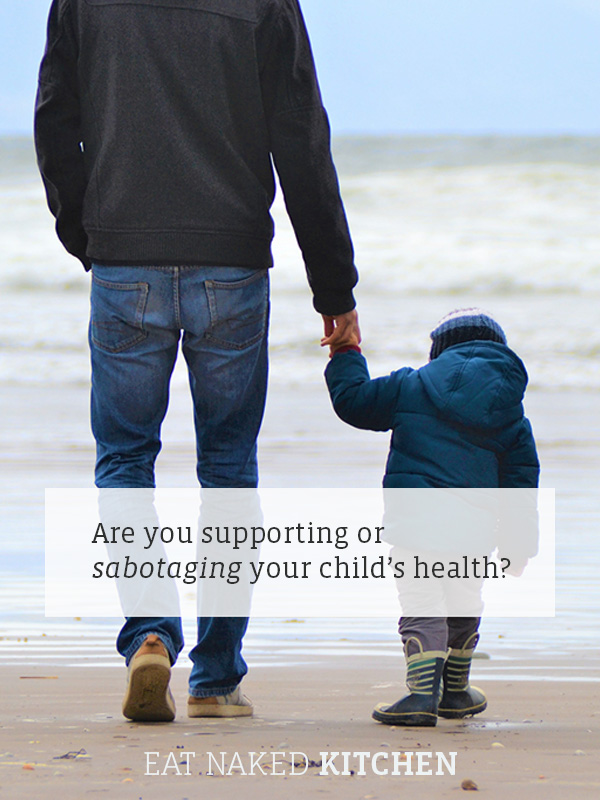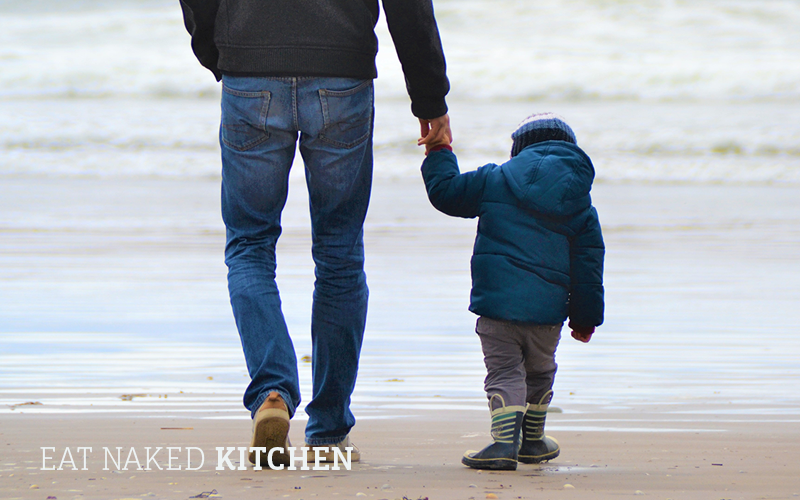Sarah* burst into tears a few minutes into our session: “I’m trying so hard, but every time he takes her out for some daddy-daughter time, he sneaks in treats, throwing all this hard work out the window. It’s ‘their little secret’ and I know he does it from love, but it’s taking us backwards.”
*name changed to protect her privacy
Sadly, we see and support clients like Sarah all the time.
Margaret and I have been in the health business for over 25 years combined at this point, and there’s an uncomfortable truth I need to talk about today.
Here’s how it goes: the first contact is usually from a concerned mom. She’s looking for answers to some health issue her child is struggling with. Usually she’s been down many roads already and she’s feeling overwhelmed and alone.
As any of our clients will tell you, addressing health issues naturally is hard work. You’re confronted with decisions every day – many times a day – where you have to choose between the easy path (the one that’s more convenient, affordable, fast, and socially accepted) and the harder path (the one that’s more arduous, often more expensive, time consuming, and “weird”). And almost without exception, the harder path is the one that’s better for your health.
When we’re talking about a child, the difference between these two paths is amplified profoundly. And more often than not, the one who needs to be the “enforcer” of these hard decisions is the mom.
Here’s where it gets even harder:
We see another quieter and more subtle pattern: the father, in all his best intentions, comes in as the Fun Dad and thwarts the process of healing.
It’s not intentional. He’s not trying to hurt his child or cause harm, but when you’re going to the movies, popcorn and a soft drink are just more FUN. (Right?) And of course the child wants them. And of course it’s insanely hard to say no or choose the healthier option.
Do ALL fathers do this? Not at all. There are model fathers that lead their family in their health journey. But sadly, they’re the exception not the rule. Over and over again we hear stories of how the father doesn’t view dietary changes to be legit aspects of one’s health.
And I’m speaking to you as a father who has done this myself – more times than I care to admit.
Let’s take gender out of it.
In most parenting scenarios, there’s a bit of a good cop/bad cop situation. Inevitably one person in the relationship is more disciplinarian and the other more loose or “fun”. Sometimes these roles fluctuate between partners, but there tends to be a more dominant trait in each of us.
Me? I’m the Fun Dad. I introduced movies, pizza, ice-cream and all the other treats. I was the one who brought them into our household, encouraging them as special experiences, as treats, and as something to look forward to and be rewarded with.
I’ve also witnessed the fallout behavior from these “treats”. It’s the tantrums after screen time, the sneaky behavior around sweets, not eating dinner due to overeating snacks, headaches from eating too many sweets… As they say “you give an inch, they take a mile.”
And let’s face it: it’s not just the kids. I see it in myself, too. It’s a rare one of us who doesn’t fall down the slippery slope of some vice or another.
I distinctly remember meeting a man many years ago that didn’t have a taste for sweets. I was fascinated. I barraged him with questions about his childhood trying to understand how this came to be. He explained that sweets and desserts were never something emphasized in his family. They weren’t encouraged, but neither were they discouraged. There was simply no energy around them at all.
Now, he also shared (and I think this is key) that his household never had processed sweets or treats in it. At home, there was no one modeling to him the desirability of treats. There was no one trying to manage his emotions by giving him something sweet. It was something that existed “out there”, but no one in his day-to-day turned treats into something special or rewarding.
So if you’re like me, and you’ve gone down this path, how do you turn it around?
Good thing for us that kids are so malleable and impressionable. When Margaret and I are on the same page (which is a majority of the time, thankfully) and we remove the stimulus that is encouraging the negative behavior or causing health issues, the kids fall back into a place and rhythm quite easily.
As a non-food example, our oldest daughter was waking up early to watch things from our phones and iPads without permission. This was because she knew our screen pass codes and could easily access the entertainment apps on these devices. It was starting to get out of control so we changed the pass codes on the phones and shut down WiFi from 9pm-8am. Once we took the option out of the equation, it quickly became a non-issue. Her sleep is now better, as is her mood.
Another example is snacks and treats. Now that the holidays are behind us, we’ve cleared out the kitchen and have simply stopped having treats in our house. We didn’t make a big deal about it, they’re just not available anymore. The kids don’t see us eating them nor do they see them in the house. There’s no energy around them because they are a non-issue. Now that the stimulus isn’t there, it doesn’t come up. It’s pretty incredible how simple the change has been.
Do I wish I could shower my kids with all the special treats I had as a kid? Sure.
Do I wish I could go trick or treating with my kid at Halloween and gorge on candy for days and weeks afterwards with them? Sure.
But I know better.
Here’s what I’ve realized: it’s not the treats that make us feel special. If anything, they make things worse. It’s the time with my kids that makes it special. We don’t have to add sugar to the mix. Undivided, quality connection is enough.
And so, the question I now ask myself when making choices around treats with my kids is, “Am I helping or hindering their health?”
If I’m helping their health, I proceed. Hindering, I stop and change course.
Are kids going to eventually be pulled in other directions once outside the home? Of course. It’s not about controlling what can’t be controlled. It’s about establishing solid foundations that my child can always default to when they feel out of control emotionally or physically.
Every day I’m redefining how I show up in my family. Most of all, I’m rewriting this notion that my connecting with my kids needs to revolve around treats. And in the process, I’m showing them – and myself – that the time together is what’s most important and fun.





Great article
I do not have kids …. but I can just see the cycle
I grew up without sweets ,treats, sodas ,processed food in the house
So in my house … I dont Have them either
I never crave chocolate…like ever
We were told to grab a piece of fruit or make toast if we were hungry
So … guess what I do?
I veered in my 20-30’s , when I made my own money and had my own place and was “ free” to have whatever I wanted.
I defaulted to what I grew up with when iI gained weight and felt miserable .
It seems like the training of my taste buds was an important factor.
Your parents did you well and set you up for success! Thank you for sharing!